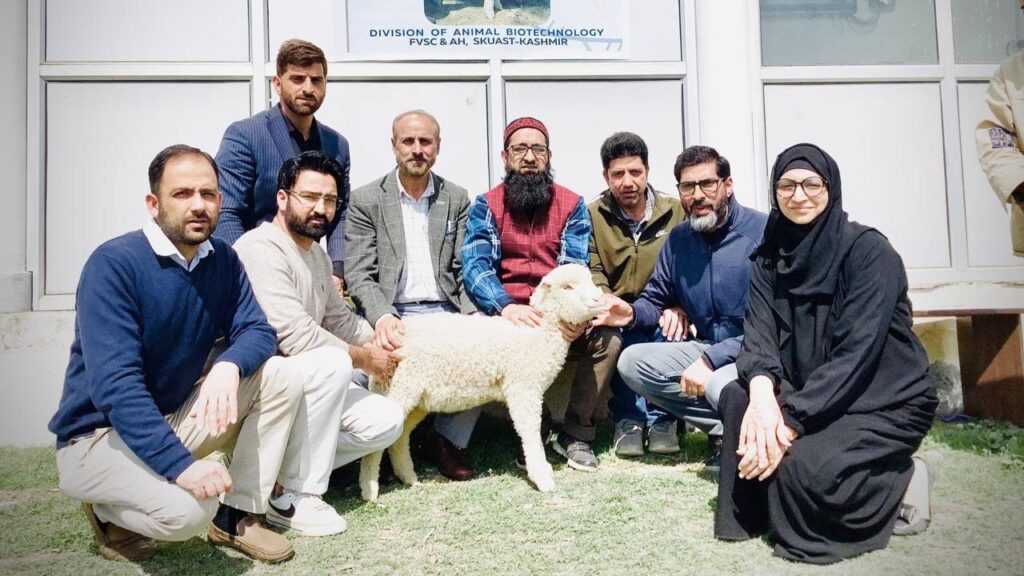The Sher-e-Kashmir University of Agricultural Sciences and Technology (SKUAST-Kashmir) has successfully created India’s first gene-edited sheep, marking a major advancement in reproductive biotechnology. This achievement places India among a select group of countries capable of advanced genome editing in livestock.

Gene Editing Using CRISPR-Cas9
The lamb was born after precise editing of the myostatin gene, which regulates muscle growth. This modification increased the animal’s muscle mass by around 30%, a characteristic similar to that of high-yield European sheep breeds like Texel, but not found in indigenous Indian breeds. The gene editing was performed using the CRISPR-Cas9 system, ensuring accuracy and safety without introducing foreign DNA.
Significance and Regulatory Outlook
Vice Chancellor Prof. Nazir Ahmad Ganai described this breakthrough as a new era for livestock genetics in India. The method aligns with global biosafety standards and may receive smoother regulatory approval compared to traditional transgenic techniques, as it involves modifying the organism’s native genome.
Scientific Leadership and Institutional Vision
The research was led by Dr. Riyaz A Shah, known for cloning India’s first Pashmina goat in 2012. SKUAST-Kashmir continues to position itself as a center for advanced agricultural and veterinary research, integrating technologies such as cloning, gene editing, vaccine development, and stem cell research.
Potential Impact on Agriculture and Livestock
Though the gene-edited lamb is currently for research purposes only and will not enter the food supply immediately, the innovation promises future applications including enhanced productivity, disease resistance, and sustainable farming. Experts see gene editing as a key tool for improving livestock resilience, particularly in vulnerable regions like Kashmir.
Support from Government and Policy Implications
Lieutenant Governor Manoj Sinha praised the university’s milestone and emphasized its importance in addressing food security and rural livelihoods. This success follows India’s recent approval of a gene-edited rice variety, reflecting the country’s progress in molecular breeding and biotechnology.
Future Prospects and Ethical Considerations
Gene editing offers an alternative to genetically modified organisms (GMOs), potentially overcoming public and regulatory resistance due to its precision and safety. The university is also investing in training and infrastructure to nurture expertise in these emerging fields. Scientists believe that with responsible scaling, such technologies could significantly boost farmer incomes and reduce import dependency.
Global Recognition and Scientific Optimism
International experts have recognized SKUAST-Kashmir’s accomplishment as a landmark for Indian livestock science. The gene-edited lamb symbolizes India’s growing genomic capabilities and the innovative spirit of the university, despite regional challenges.
